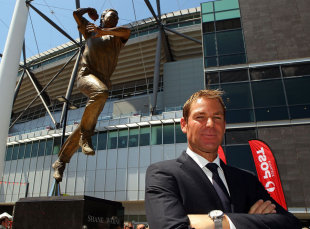Those of more mature years know that the heart is a fickle organ and that desire does not necessarily recede with the gums
Rowan Pelling in The Telegraph
It takes a brave 18-year-old boy not just to admit he’s a virgin, but to broadcast the fact to his entire school. Wellington College sixth-former Phin Lyman took a stand against casual sex in the school magazine, writing: “Once you have had sex with someone, you’re connected to them emotionally and physically. If you tear that bond, the rip leaves open scars where the glue once was.”
I applaud young Lyman’s idealism, while feeling nostalgic for his depth of certainty. Will any of us ever see the world so sharply, so well defined in black and white, as we did when we were teenagers? At that age there are few worse crimes than getting off with your best friend’s ex, and you would happily jail half the parents you know for their pathetic, unoriginal transgressions.
I remember peddling much the same line as Lyman when I was 18. No gormless teen boy was going to pluck my virginity in a bout of teen fumbling: I wanted my first time to be beautiful and meaningful. It didn’t occur to me then that the two scenarios weren’t necessarily mutually exclusive. And obviously I wasn’t going to admit that fear of my own ineptitude was a stronger prophylactic than moral certainty.
But what can you know about sex when you’ve never had it? It’s akin to posing as a sommelier when you haven’t ever tasted alcohol. Furthermore, the ingénue who sips sweet lambrusco may grow to like pinot noir. Eighteen years on from when I took up the editor’s chair at the Erotic Review, I laugh at the naive conviction of my earliest articles. Did I really once declare that spanking was not a turn-on? What about the millions of women who lapped up 50 Shades of Grey, let alone the grown-up schoolboys who have fond memories of matron’s chastisements? No wonder the late great Auberon Waugh leant over the table at a contributors’ lunch and told me kindly: “No one knows anything about sex until they’re 40.”
Just as good store managers believe “the customer is always right”, so the wisest sex writers know desire brooks few arguments. You can’t discount other people’s proclivities, just because you don’t share them. I may still feel sex without love is an empty experience, but I bear in mind Woody Allen’s retort in Love and Death: “But as empty experiences go, it’s one of the best.”
The fact is some people flee from strong emotion, preferring fleeting encounters to the perils of overwhelming intimacy, with its attendant fear of loss. Consider 96-year-old Diana Athill’s account of her acute distress after her pilot fiancé jilted her. She wrote that for many years afterwards, “I could only be at ease in a relationship which I knew to be trivial. If I fell in love it was with a fatalistic expectation of disaster, and disaster followed.”
But then only the elderly have earned the right to be wise about love and sex. They know the heart is a fickle organ and that desire does not necessarily recede with the gums. I recently heard – via an eminent gynaecologist – of a 90-something woman who was embroiled with a “toyboy” in his eighties. She wouldn’t let him move in, as it would “spoil the mystery”. I’m not sure whether this counts as casual sex, or loving sex, but who would begrudge them their pleasure?
Meanwhile, I’ll follow Phin Lyman’s progress with interest and all the more so for being married to an old Wellingtonian. Indeed, the first time I glimpsed my husband was when he appeared on a BBC Everyman documentary about celibacy, where he declared himself happy to take extended breaks from relationships. Now there’s nothing most women like more than a challenge, and as I watched the programme I thought: “I’ll break that man.” I bet scores of schoolgirls are having similar thoughts about the handsome sixth-former.



 TFT Issue: 16 May 2014
TFT Issue: 16 May 2014
